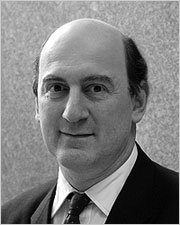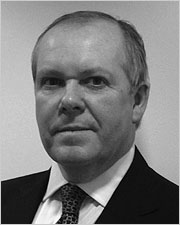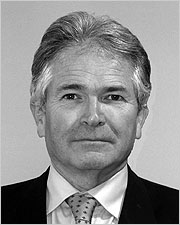Judgement on costs and further litigation likely
The Dubai International Financial Centre (‘DIFC’) Court on 30 October 2014 followed up its seminal ruling in Rafed Al Khorafi and Others v Bank Sarasin-Alpen (ME) Ltd and Bank Sarasin & Co Ltd., by ordering Switzerland’s Bank Sarasin-Alpen and its affiliate to pay the Al Khorafi family members $10.45 million in damages to compensate for the bank’s wrongdoing in selling them inappropriate structured real estate, commodity-backed and equity sector basket instruments in mid 2007 to early 2008. This brings to a close the trial stage of the suit, initiated five years ago after the 2009 world economic collapse led the Al Khorafi Family members, represented by KBH Kaanuun, to default on those lending instruments. Bank Sarasin-Alpen had two weeks to appeal the decision.
The Al Khorafi’s initially sought damages in the amount of $26.5 million. The damages included three categories of loss: (1) losses on the sale of the Claimants’ investments with Bank Sarasin-Alpen; (2) other fees and interest charged by Bank Sarasin; (3) fees and interest charged on an underlying loan up to 14 December 2009. The Claimants also sought interest on their losses under DIFC regulatory law. Choice of law proved to be a major point of contention at trial, as Bank Sarasin-Alpen argued that the transactions should be governed by Swiss law, not the Dubai Financial Centre regulatory statutes. To the extent that the Al Khorafi family alleged no claims under Swiss law, Bank Sarasin would have had the court find it impossible to award any damages to the them. This was summarily rejected in the court’s first judgment of 21 August 2014: ‘Bank Sarasin contends that any damages should be assessed in accordance with Swiss law and the Claimants should have pleaded (but have failed to) plead a claim under Swiss law . . . I reject this contention that Swiss Law is of relevance in relation to the quantification of compensation under the DIFC Regulatory Law’ stated Deputy Chief Justice Sir John Chadwick. A full discussion of the original ruling may be reviewed here.
Money won’t create success, the freedom to make it will.”
Nelson Mandela
The amount finally awarded by the court, while less than the Al Khorafis originally claimed in the litigation, marks the DIFC court as no paper tiger. The original judgment of the court established important precedent by interpreting the Dubai Financial Services Act provisions defining who is a “Client“, or a sophisticated investor, and the prohibition of selling financial instruments to non-clients under DFSA Article 41. The court’s determination that Mr. Al Khorafi was not in fact a “Client” under DFSA law gave rise to the legal question of whether the bank’s proposed investments met the family’s investment needs based on calculations of function and risk presented and what Bank Sarasin-Alpen did to inform the family of those risks. Ruling that Bank Sarasin had failed in that duty, the DIFC Court clarified both the necessity and scope of lenders’ obligation to their customers. By backing up those rulings with a monetary award of considerable proportion, the DIFC Court has set important guidelines for parties involved in investment transactions within the Financial Centre.
The court also appears to have strengthened, if not extended, the boundaries of its jurisdiction regarding investments that are conducted within or are associated with the Dubai Financial centre in rejecting Swiss law in favour of DFSA regulations. The ruling thus not only offers parties on all sides of an investment a specialised forum for resolving grievances, but reflects a staunch view of the court’s responsibility to oversee such transactions within the DIFC. As the DIFC grows into a larger role in world finance, this assertion of jurisdiction will have increasing consequences for high-worth individuals, institutional investors and banking houses alike.
The issues of this case are unlikely to be resolved at this point. It is widely anticipated that an appeal will be launched and also that there will be further litigation concerning the payment of any compensation to the Claimants. Orders have so far been made that the payment of any compensation will be paid into the court pending resolution of these disputes.
Expert Evidence Limited is a professional firm concentrating on the four main areas of dispute resolution; acting as expert witnesses in financial litigation, mediation, arbitration and adjudication. The firm has a civil, criminal and international practice and has advised in many recent cases. Areas of specialisation include banking, lending, regulation, investment, and tax.
Ask a question about expert witness services. We are here to help!
Disclaimer: The above case summary is derived from publicly available information and is not intended to be anything more than a statement of the author’s views on the salient factors of the case. It is not intended and should not be understood to be legal advice of any sort. All views are solely those of the author and no use of the summary should be made without statements being checked against the source of information. Expert Evidence Limited takes no responsibility for the views expressed. The copyright of the summary is owned by Expert Evidence Limited but may be used with written permission which may be forthcoming on application through the contact us page. This news item is not intended to imply or suggest that Expert Evidence Limited was involved in the case, only that it is considered an interesting legal development.


















